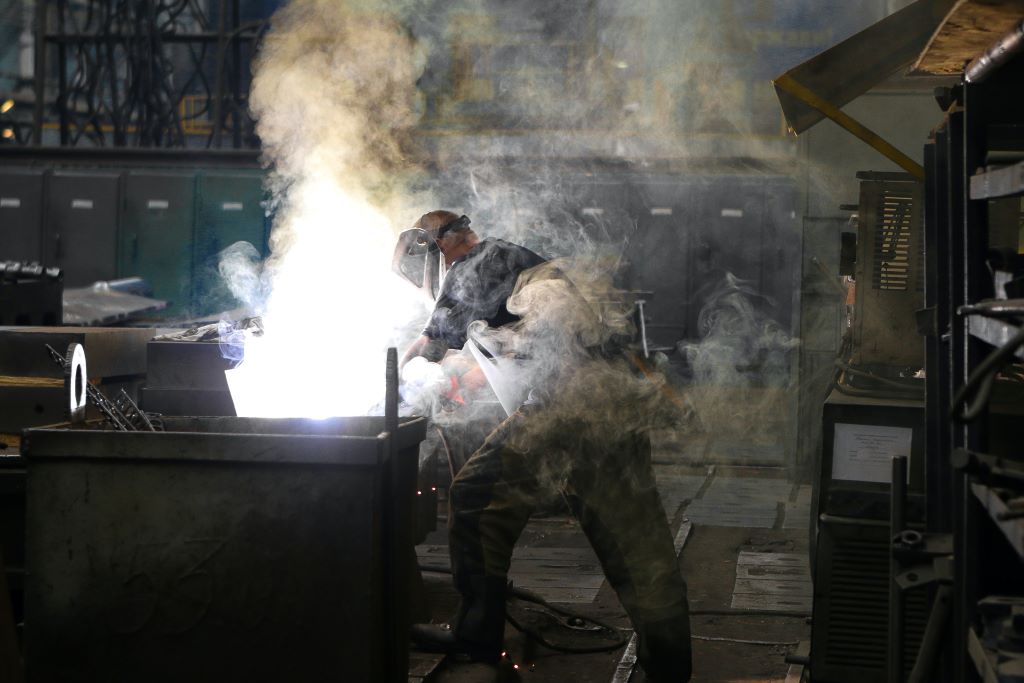This week, the warning signs for leaders as companies grapple with The Great Resignation; plus, four less-obvious areas of your business to automate; the deadly effects of overworking; the lasting impact of staff shortages in the UK; and China’s growing skilled labour shortage. Read this week’s trends from the world of work.
September 10, 2021
Future of Work
Future of Skills
#1. The Great Resignation is here, and it’s real.
More than 11.5 million workers in the U.S. quite their jobs during the months of April, May, and June 2021, according to the U.S. Department of Labor. Recent studies indicate that it’s not over, yet. The cost of any turnover is expensive for organizations, and it’s worse for small and medium-sized companies, where certain departments may only have one or two coworkers. Read more at INC.
The pandemic has caused employees to rethink their priorities during the pandemic, and many workers are citing stress and burnout as cause to look elsewhere. According to our research, 54% of young leaders report that they have experienced burnout, the same group who shoulder significant responsibility for future progress. When looking at office-based workers globally, our research found definite warning signs for companies: 41% of workers that have considered, or are considering, moving to a job with more flexible working options. 38% of surveyed workers are considering or actually changing careers. Read more here.
The pandemic has caused employees to rethink their priorities during the pandemic, and many workers are citing stress and burnout as cause to look elsewhere. According to our research, 54% of young leaders report that they have experienced burnout, the same group who shoulder significant responsibility for future progress. When looking at office-based workers globally, our research found definite warning signs for companies: 41% of workers that have considered, or are considering, moving to a job with more flexible working options. 38% of surveyed workers are considering or actually changing careers. Read more here.

#2. Four less-obvious areas of your business to automate.
For many businesses, automation can be a scary word. The word triggers thoughts of job-snatching robots. But once you understand the process of automation, your organization might find it far less daunting than it sounds. Automation can be a simple way to save time. To help save time, you can try automating group meetings, financial analytics, employee evaluations, and copywriting to help save time. Read more at Forbes.

#3. Overworking is deadly whether you work in a factory or your home office.
Working long hours and late nights is dangerous for your health, no matter if you work at a factory floor or your home office. A joint report from the World Health Organization and the International Labour Organization published this month found that working more than 55 hours a week has detrimental effects on your health. Working longer hours, no matter the location, can trigger problems in the cardiovascular system and lead to behavioral changes. Read more at MSN.

#4. Staff shortages to last two years, warns business organization.
Staff shortages, caused by post-Brexit immigration policies and training shortfalls, may continue for another two years, pressing pause on the country’s pandemic recovery, a leading UK business organization warns. In addition to the shortage of HGV drivers, companies in other sectors are suffering, too, from the hospitality industry to the service industries. In the long term, the UK should tailor skills policies to supply workers needed to fill vacancies, the organization warned. Read more at Yahoo.

#5. China sees skilled labor shortages worsening amid tech push.
China is one of many countries seeing a shortage of skilled workers, and they expect that shortage to worsen over time as the government develops its high-tech industries. Gao Gao, deputy secretary general of the National Development and Reform Commission, said the country expects the mismatch between jobs and skills to be the primary problem in the labour market. The Chinese economy is facing a major shortage of skilled workers amid rising joblessness among young people. Unemployment of people between the ages of 16-24 is more than three times the national average of 5.1%. Read more at Bloomberg.




